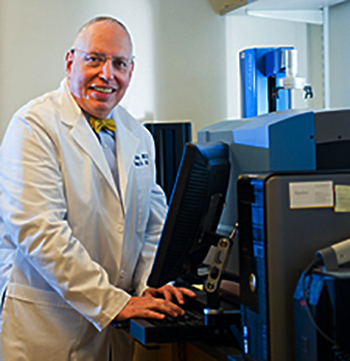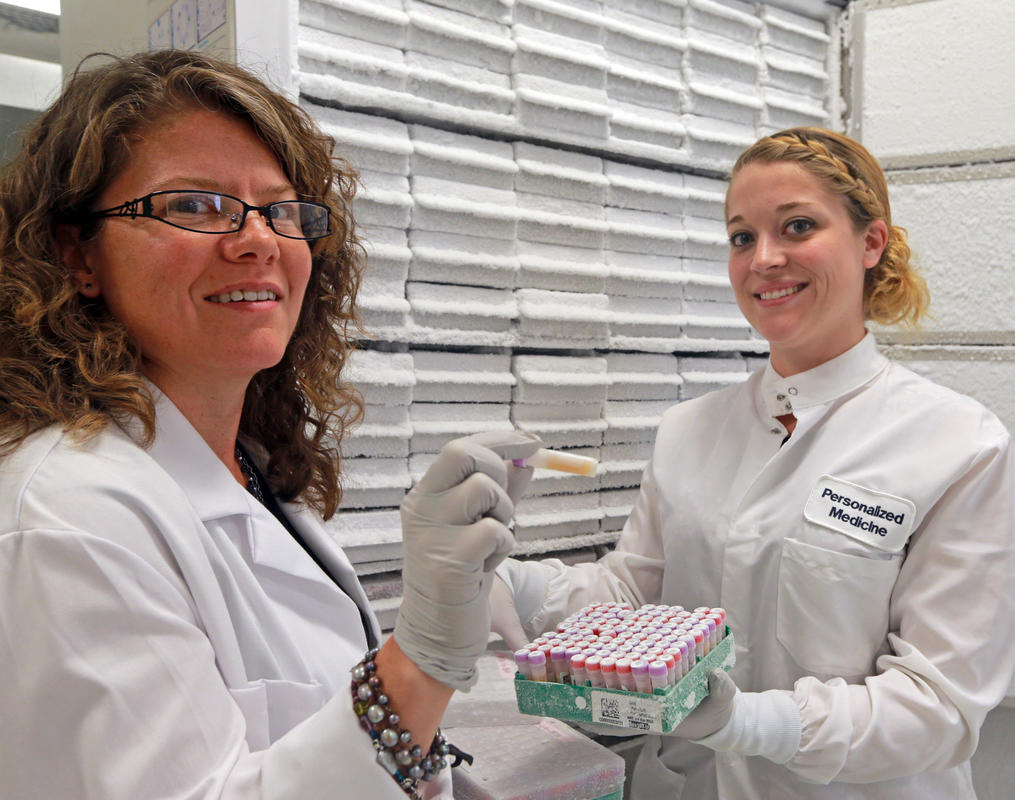Goal is to enable gene sequencing data to reside in EMRs, which would provide pathologists and clinical lab professionals with an opportunity to add value
More federal grant money is available to speed up research designed to make it possible to incorporate genome information into the electronic medical record (EMR). This is a development that can have both positive and negative consequences for clinical laboratories and anatomic pathology groups.
The National Institutes of Health (NIH) is awarding more than $48.6 million in grants to researchers seeking to better understand the clinical implications of genomic information and determine the best ways to deliver news to patients when their genetic data indicates they may be predisposed to certain diseases or medical conditions.
The grants are administered by the National Human Genome Research Institute (NHGRI) and represent the third phase of the Electronic Medical Records and Genomics (eMERGE) program. This is a national consortium working to move genomics research closer to clinical application by identifying the potential medical effects of rare genomic variants in about 100 clinically-relevant genes.
The results of this latest research will be particularly important to pathologists and clinical laboratory scientists. Medical laboratory professionals are expected to have a central role in the growth of personalized and precision medicine that uses genetic testing to more accurately diagnose patients and guide the selection of appropriate therapies.
Identifying Genetic Conditions that Point to Hereditary Diseases
Partners HealthCare, which includes Brigham and Women’s Hospital and Massachusetts General Hospital in Boston, was given two four-year grants that total $12.3 million. Researchers at Partners will analyze 25,000 blood samples from the Partners HealthCare Biobank—a research sample and data repository located at Cambridge—to find genetic conditions that could point to hereditary diseases such as breast cancer and mood disorders.
Results will be delivered to patients through Partners’ new EMR. Researchers will then study two aspects of using genetic information in this way. First, they will study the psychological effects of patients receiving news of unseen health conditions via the EMR. Second, they will assess the economic impact on the healthcare system that results from patients learning about these health conditions and risks.
“Healthcare systems generally are struggling with how to deliver genomic information,” stated Scott Weiss, MD, a principal investigator and Scientific Director of Partners HealthCare Personalized Medicine, in a story published by the Boston Herald. “There’s national imperative around this.”

Scott Weiss, MD, MS, a principal investigator and Scientific Director of Partners HealthCare Personalized Medicine, says healthcare systems are “struggling with how to deliver genetic information” to patients. New research may provide practitioners with an answer. The National Institutes of Health is awarding more than $48.6 million in grants to Partners HealthCare and nine other medical centers or universities whose researchers will focus on finding genetic conditions that could point to hereditary diseases and determining how best to communicate such news to patients. (Photo copyright: Dana-Farber Cancer Institute.)
In his 2015 State of the Union address, President Barack Obama proposed a $215 million Precision Medicine Initiative, which would fund expanded research to revolutionize the treatment of disease:
“I want the country that eliminated polio and mapped the human genome to lead a new era of medicine—one that delivers the right treatment at the right time … tonight, I’m launching a new precision medicine initiative to bring us closer to curing diseases like cancer and diabetes, and to give all of us access to the personalized information we need to keep ourselves and our families healthier,” Obama stated.
Geneticist Heidi Rehm, PhD, FACMG, Director of the Laboratory for Molecular Medicine at Partners HealthCare Personalized Medicine, expects this latest research to advance the use of genomic information to guide personalized and preventative care.
“Genomics is here today. It’s being used in clinical care, partly for diagnostics, but it’s not being used for preventive medicine in a broad way,” Rehm told the Boston Herald. “I think that’ll really help us as clinicians and laboratories to determine what information we should be given to the patient.”

Geneticist Heidi Rehm, Director of the Laboratory for Molecular Medicine at Partners HealthCare, will help lead research at Brigham and Women’s Hospital in Boston into what information should be given to patients regarding genetic variants that affect a person’s health and treatment options. The investigation is being funded through $12.3 million in grants from the National Institutes of Health to Partners HealthCare, a member of the Electronic Medical Records and Genomics (eMERGE) project. (Photo copyright: Stuart Cahill, Boston Herald.)
eMERGE to Focus on Genomic Basis for Disease and Personalized Medicine
Partners HealthCare and Baylor College of Medicine (BCM) in Houston serve as the sequencing and genotyping centers for the eMERGE network, which also includes a coordinating center at Vanderbilt University Medical Center in Nashville, Tennessee. Eight other sites at medical centers or universities across the country participate in eMERGE.
In this latest round of funding from the NIH, the BCM received an $8.39 million, four-year grant to continue its efforts to understand the genomic basis of disease and tailor medical care to individual patients based on their genomic differences.
“The Humane Genome Sequencing Center site will sequence critical genes in eMERGE subjects and report on clinically actionable findings,” stated Richard Gibbs, PhD, Director of the center, the Wofford Cain Chair and Professor at Baylor, and principal investigator of the program. He was quoted in a BCM news release. “We will also manage a data portal for using distributed computing data to serve data to eMERGE sites and the eMERGE coordinating center for further analysis.”
The eMERGE project was established in 2007 with five network sites and has grown in size and scope. The following researchers also have been awarded grants in the third funding phase, pending available funds:
• Group Health Research Institute (GHRI);
• The University of Washington, Seattle;
• Vanderbilt University School of Medicine;
• Cincinnati Children’s Hospital;
• Mayo Clinic in Rochester, Minn.;
• Geisinger Health System in Danville, Pa.,
• Columbia University in New York City,
• Children’s Hospital of Philadelphia; and
• Northwestern University in Chicago.
“These newly funded projects are focused on discovering genes and gene variants with clinical implications by using the latest sequencing technologies to examine rare and common variants suspected to relate to disease risk and treatment effects,” Rongling Li, MD, PhD, MPH, Program Director for eMERGE, said in an NHGRI statement. “The other important component of these grants is implanting what researchers learn about these gene variants into medical settings to improve patient care.”
Pathologists, clinical chemists, and clinical laboratory scientists will want to track the findings that result from this recent group of NIH grants. Many questions remain about how patients may respond when presented with information developed from the sequencing of their genomes. Medical laboratory professionals have an opportunity to contribute to the interpretation of this data and consult with physicians and patients on how to use it for diagnostic and therapeutic purposes.
—Andrea Downing Peck
Related Information:
NIH Grants Seek the Best Ways to Combine Genomic Information and EHRs
Partners Get $12.3M to Advance Genomic Medicine
National Institutes of Health Awards Partners HealthCare $12.3 Million to Improve Genomic Medicine



